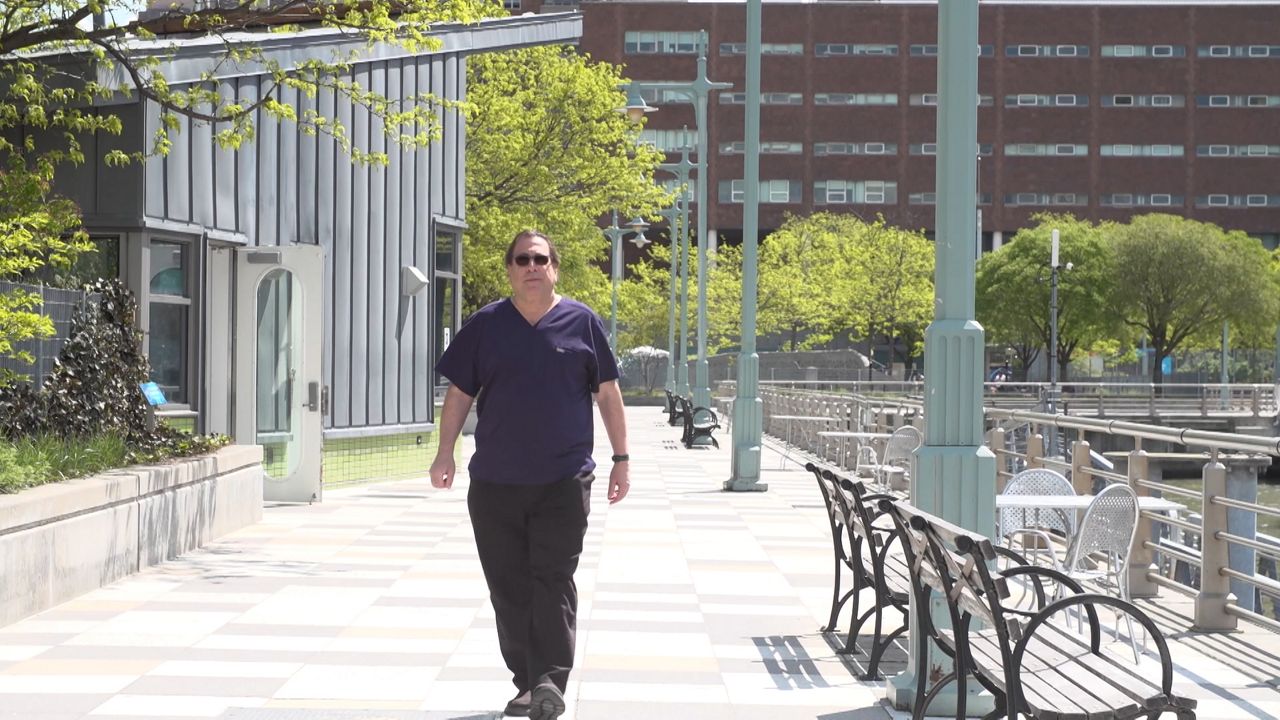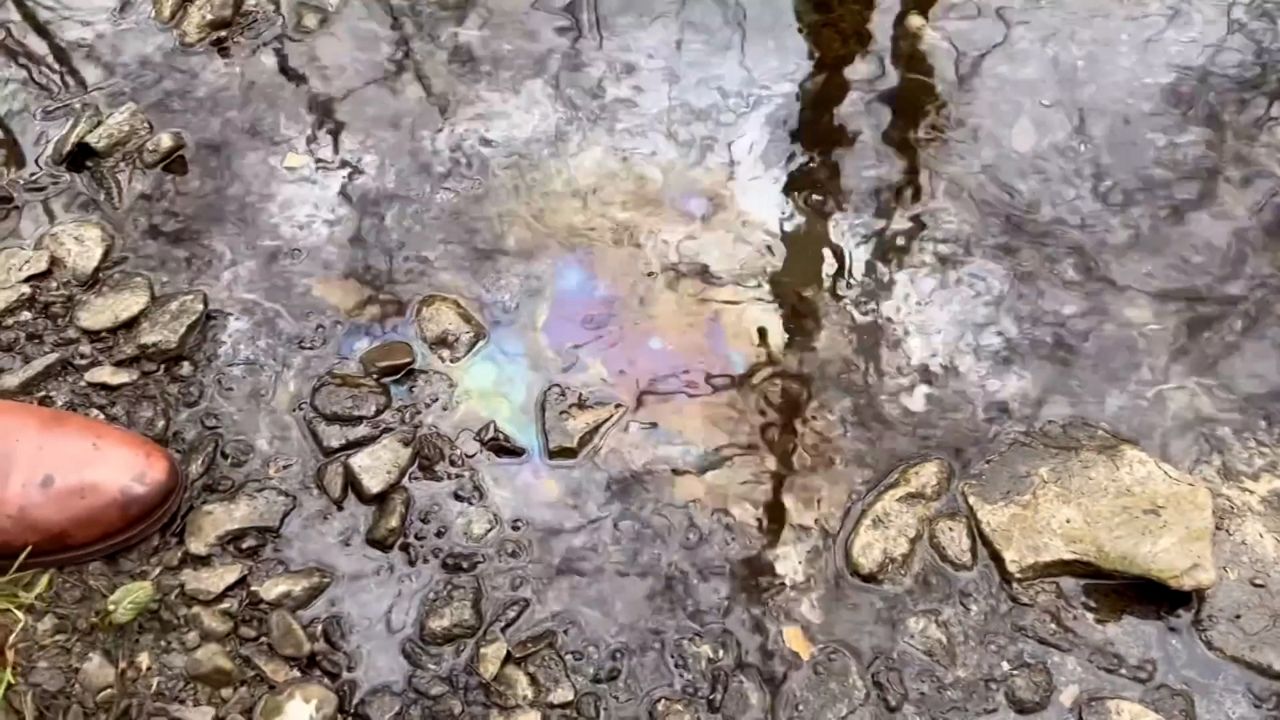As the saying goes, those who cannot remember the past are doomed to repeat it. As the East Palestine, Ohio train derailment fades from national headlines, our National Health Reporter Erin Billups speaks with those forced to remember past tragedies daily — and offers some advice for those still grappling with the derailment’s aftermath.
The East Palestine train derailment captured the nation’s attention. Now, months later, cleanup remains while the country’s attention dwindles.
“We have really short attention spans, unfortunately,” said Michael Barasch, an attorney who has represented victims of the 9/11 terrorist attacks for more than two decades.
He is still paying attention — because he has to. He points to similarities between the response to train derailments like the one in East Palestine and the federal response after 9/11. Barasch points particularly to then-EPA Administrator Christine Todd Whittman’s statement that the “concentrations are such that they don’t pose a health hazard.”
“The air was not safe, and I fear the air was not safe after the train derailment,” said Barasch.
Dr. Marc Wilkenfeld, an expert in chemical exposure, has many patients who were victims of 9/11.
“To rush in and drink a glass of water and then leave is the same thing as coming down here, right? And saying the air is safe to breathe,” Wilkenfeld said during a conversation near the site of the World Trade Center attack.

Wilkenfeld currently serves as NYU Langone Health’s Medical Director for Occupational Health.
His newest patients are residents of East Palestine. “They started to call me and a couple have come in and more are coming in.”
Residents tell him their symptoms; headaches, irritated lungs, cough, fatigue. Some are reporting neurologic symptoms like tremors and seizures. He said his patients say they are not getting answers at the clinics set up to care for them.
“Sad that someone has to drive nine, 10 hours just to see a doctor who knows a little bit about this,” said Wilkenfeld. “One patient told me she wanted to come see me, but the drive was too long. She said she went to the doctors in East Palestine and they just don't know what to do. They don't know what to tell her.”’
Wilkenfeld said what the Environmental Protection Agency should not tell people is that anything is safe.
“I don't think you should be saying something is safe until you know for sure. You can say we don't know,” Wilkenfeld. “We learned from the mistakes of the government post-9/11. You don't want to turn around a year later and say, well, you know, we were wrong. It wasn't really safe.”
Indeed, a 2003 Evaluation Report from the EPA’s office of Inspector General concluded the EPA should not have stated the air was clean in the aftermath of 9-11, saying, “because of numerous uncertainties – including the extent of the public’s exposure and a lack of health-based benchmarks – a definitive answer to whether the air was safe to breathe may not be settled for years to come.”

So far in East Palestine, government testing shows the levels of vinyl chloride in the soil, air, and water to be below levels of concern. Vinyl chloride is the main chemical the derailed train was carrying and was released in a controlled burn.
Wilkenfeld says the symptoms East Palestine residents are experiencing tell a story of exposures that current testing may not be picking up.
“Vinyl chloride, we know it causes liver cancer. Right. It doesn't mean that most people or many people are going to get liver cancer, but it means we need to screen for it,” Wilkenfeld.
The EPA says a special health advisory unit brought in toxicologists, geologists, chemists and other experts.
In April, the agency took over leadership, a spokesperson telling Spectrum News that the EPA is working to understand any other potential exposure residents face, and said if there is not a known toxicity value for a chemical of concern, the EPA will work with its agencies to understand the chemical and “fill in the gaps.”
“You can know what an individual chemical does, but when you mix things together, it might do something completely different or new. And that's why we also need scientific studies,” said Wilkenfeld.
In the short term, victims are calling for a disaster declaration in an effort to potentially gain access to FEMA funding. But FEMA does not typically offer assistance when there is no loss of property or obvious damage to it, particularly when the company at fault — Norfolk Southern — is rightfully footing the bill. To date, the company said it has provided $63 million in community support.
In terms of a public health response, Wilkenfeld and Barasch say now is the time to establish a fully-funded monitoring program.
“For most cancers, the latency period is four years or more,” said Barasch. “All these people should be covered by a health program similar to the World Trade Center program.”
It took years of lobbying and the advocacy of the New York and New Jersey Congressional delegations to establish the World Trade Center Health Program. More than 100 thousand people are enrolled, and 67 cancers are covered. The number of people impacted by the derailment is arguably smaller than those harmed by 9/11. But the 2001 tragedy and work done in the aftermath did lead to a system that is working to address the long-term health care needs of many affected.
Norfolk Southern said it will create a compensation fund, which is different from a government funded health monitoring program. So far, there is no congressional action on this front.
What history has taught us is that long-term funding, skilled medical professionals, and scientific monitoring are all necessary so that those exposed will have help and care.



